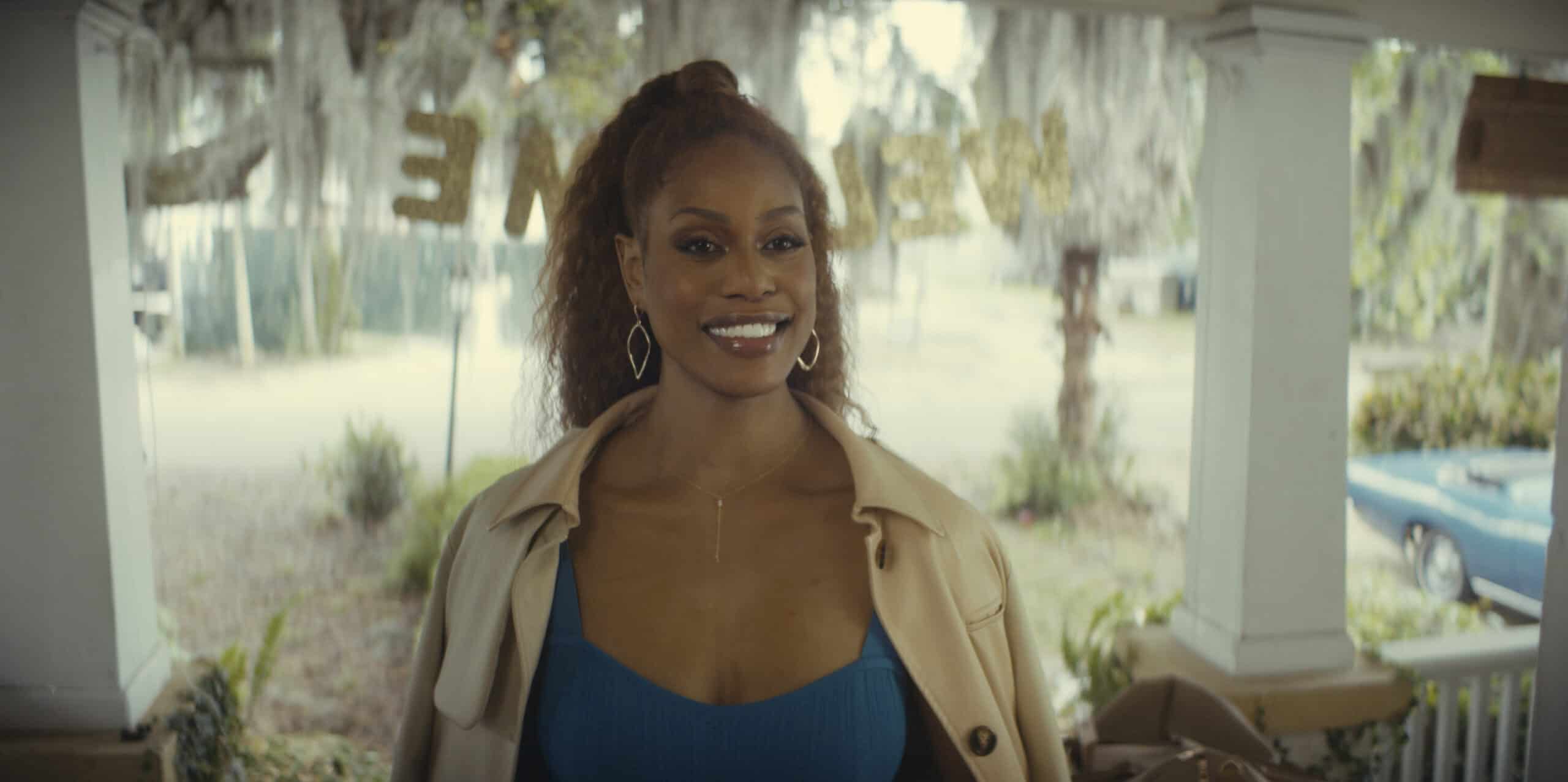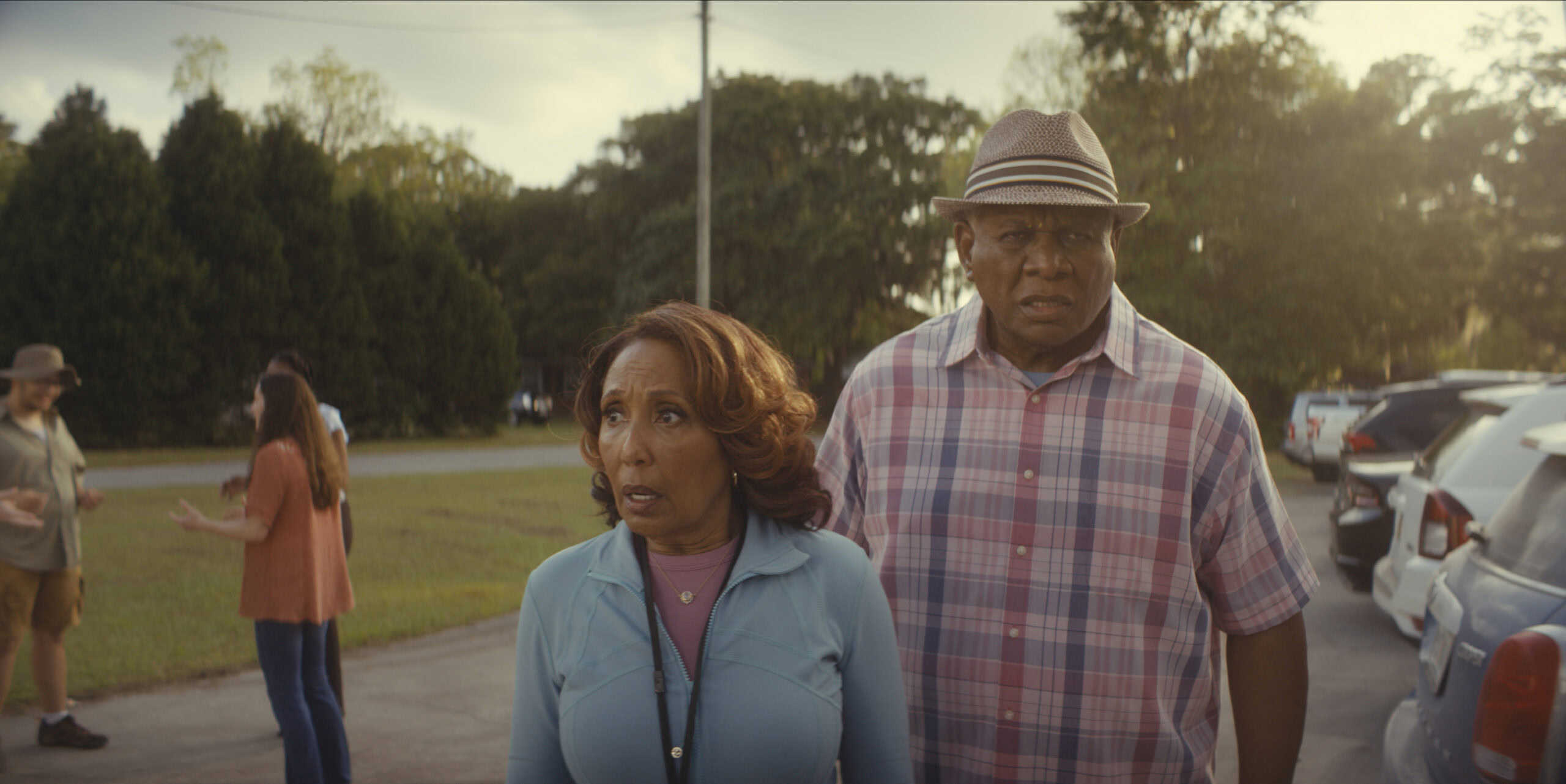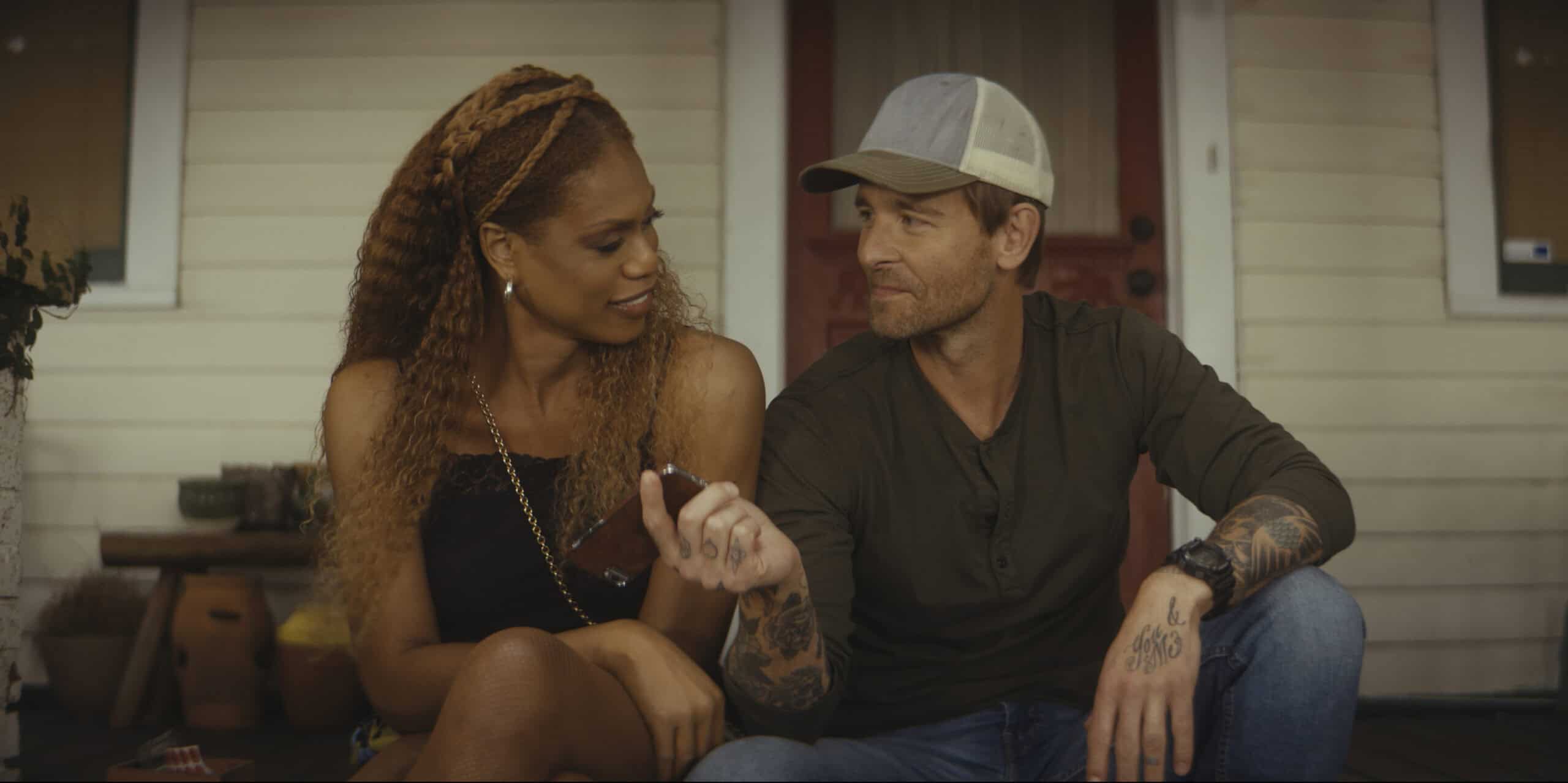Clean Slate: Season 1 – Review and Summary | Norman Lear’s Final Gift Is Laverne Cox Getting The Opportunity To Tell A Fictionalized Version Of Her Story
“Clean Slate” stars Laverne Cox stars in one of the legendary Norman Lear’s final shows, which tries to balances a sense of universality with cultural specific stories.

Spoiler Alert: This summary and review contains spoilers.
Additionally, some images and text may include affiliate links, meaning we may earn a commission or receive products if you make a purchase.
Clean Slate: Season 1 Details
- Number of Episodes: 8
- Season Premiere: February 4, 2025
- Season Finale: February 6, 2025
- Network: Prime Video
- Genre(s): Comedy, Drama, Romance, LGBT+
- Actors: Laverne Cox, Jay Wilkison, D.K. Uzoukwu, Norah Murphy, Telma Hopkins, George Wallace
- Renewal Status: To Be Determined
Plot Summary

After 23 years, Desiree has returned home to the Mobile, Alabama area, and because they completely cut off contact with their car wash-owning father, Harry, they weren’t aware Desiree transitioned. So Desiree’s sudden return, after a bad breakup and her life in New York falling apart, requires an adjustment for both parties. Luckily though, thanks to a lot of therapy, Desiree is open to the familiar, like her gay best friend Lewis, and the unknown, like Harry’s employee Mack and his daughter Opal.
Over the course of 8 episodes, the combination welcomes and strengthens who Desiree can call community, and in the process of healing old wounds, she also finds herself growing like never before.
Review
Characters
Highlight(s)
- The Father-Child Connection Between Desiree and Harry, Alongside Mack and Opal [83/100]
The majority of the first season is about Desiree trying to rebuild her relationship with Harry not only due to her mother dying and him seemingly being the only family she has left but also because it is pushed that her relationship with him is what led to the bad relationships and decisions she has made. Now, as you can imagine, especially if you are a parent, being dumped with your child’s trauma and being partly held accountable for their bad decisions is a lot. Add on them transitioning during their absence and springing that on you? It’s fair to say that for someone of Harry’s age and upbringing, Desiree presented a tall order.
However, the beautiful thing depicted in “Clean Slate” is that when fathers are given a hint, an idea, of what they need to do, they’ll do it. By default, their idea is I need to provide financially, a home, and survival. However, as shown by Desiree, she wanted to be defended, shown value, and given the kind of grace and humanity the outside world didn’t guarantee. She wanted a cocoon where home wasn’t just a place where her material items were but where her heart and truth were safe. Which, throughout the first season, we see Harry take to, almost to the point of you being surprised he never said he wanted a daughter all his life.
But it isn’t just with Harry and Desiree. Throughout “Clean Slate,” you can see a sort of new generation trying to navigate parenting in the South. Opal is an ambitious young lady, only 11 years old, but is like a sponge, and her father, Mack, is an ex-con working hard, dealing with Opal’s mom being a deadbeat, and despite all the sob story elements you can imagine, “Clean Slate” finds ways to keep this a comedy—a laugh to keep from crying comedy at times, but a comedy nonetheless.
And it is in watching Mack step up, Harry step up, and to see Desiree’s inner child be healed as Opal being a child given an environment to flourish that you see, for all the criticism that new generation of parents get, how they are lessening the trauma their children will have to heal from.
- Laverne Cox As Lead [86/100]
It has to be acknowledged all the roles and life experiences Cox likely brought to the role of Desiree. From her trouble with being attracted to men, the struggles she has had as a trans woman from Alabama, and even down to the conversations of what she deserves and not settling in life, Desiree feels like a person rather than a representative. I say this because, as likable as Desiree can be, she is also dramatic, bougie, and rude.
One of the main ways we see this is in her relationship with Mack and how dismissive she is of him until she comes upon moments when she realizes he might be the best man around. For Desiree, who is used to men with money and status, you can see her look down on him and even push the idea it is preposterous that a woman like her would want a man like him.
Now, does this make you hate some of the storylines they put Mack through? Absolutely, and it is noted below. However, by giving Desiree layers, not making her perfect, it feels like Cox is continuing the natural progression of giving trans people humanity and taking it beyond what she did with “Orange Is The New Black,” what her sisters and cousins did in “Pose” and making it so the value doesn’t have to be in the struggle a character went through, but just who they are – for better or worse.
- The Opal/Desiree Connection [84/100]
It could be believed that the inclusion of Mack and Opal is for diversity reasons, and I wouldn’t say no since, while you can see southern culture spread throughout, Mack and Opal are the only notable characters who aren’t Black or Brown with speaking parts – and they lack a sense of culture that can feel specific. Well, beyond Mack talking about trying to dodge certain types of gangs while in prison.
But, setting that aside, one thing we do appreciate is how Mack and Opal do help push the universality of Desiree and Harry’s story, as noted above, but with a special focus on Opal, I would say she also makes it so you don’t need a flashback. With Opal, you can see Desiree in many ways, especially if she got to live her life as a girl growing up.
Desiree credits her strong work ethic to her father, and when you see Opal’s dedication and creativity at Harry’s car wash, you can see a connection. In some ways, it’s through unspoken struggles—Opal’s journey of healing from her father’s incarceration, her relationship with her grandmother, and more. Also, there is their shared sense of loss and Opal’s admiration for Desiree.
Their mutual acceptance creates a connection that goes beyond words, and just as Desiree’s healing is tied to Harry stepping up, Opal’s presence in her life gives Desiree a sense of belonging—not just as someone tolerated, but as someone truly needed and valued.
On The Fence
- The Gavin Topic [74/100]
Gavin is Desiree’s ex-boyfriend who is a ghost for most of the season, and while we’re told he is the reason or at least a strong factor in Desiree’s downfall, they don’t feel human. In many ways, how Desiree damns Gavin is part of them being flawed, for you see Desiree’s standards could be mixed in with negative traits that would make them look at people like Gavin with rose-colored glasses, if not be attracted to who they are as a whole and side step what they do to others until it is done to them.
But unfortunately, while you can get a sense that Gavin might be a sugar daddy, rich, and awful because Desiree seemingly wants to place herself as the victim, Gavin feels like a very thin villain in her story. The kind where, it seems, they could make Desiree seem worse than the moments when Desiree slips up and shows the dark side of her ambitions and expectations.
- Ella Being The Sole Present Maternal Figure [78/100]

Ella makes for a wonderful mother and advocate, and it could be submitted that the way parents are portrayed is generally in a positive light. However, I have to admit, I would have loved to see Desiree’s mom and how she saw Desiree. It would have been nice to get to know Opal’s mom, who abandoned her, or Opal’s grandmother, who raised her, seemingly when both of her parents were unable to.
To me, these missing characters couldn’t be fully compensated by Ella’s existence, and while Opal’s mom could appear in a second season, I don’t think we may ever get a chance to know Desiree’s mom firsthand and know if she is seen and talked about with rose-colored glasses or not.
World-Building & Culture
Highlight(s)
- The Balancing Act [85/100]
When a show centers on a specific culture or community, particularly one historically underrepresented, it often faces a tightrope walk. Should it fully immerse itself in that culture, embrace colorblind casting, or take the Shonda Rhimes approach of diverse but commercially palatable representation? “Clean Slate” finds a different path. It embraces its LGBT+ characters while ensuring they exist in a world that is neither a utopia nor an enclave but simply life as it is—messy, complex, and intertwined with various communities.
At its core, “Clean Slate” is about family and self-acceptance. The story revolves around Desiree, a proud trans woman, returning home to Alabama and her father, Harry, adjusting to this newfound reality. Meanwhile, Lewis, Desiree’s best friend, is a closeted gay man navigating what he sees as a conservative environment. While the show’s LGBT+ representation is prominent, it never isolates its characters in a bubble of like-minded individuals.
And even when Desiree and Lewis seek out their people and community, it’s Alabama – not Los Angeles or New York City—places often depicted as havens where LGBT+ individuals can exist almost exclusively among those who share their identities. Instead, the show presents a reality where queer individuals must engage with a broader world.
Lewis, for example, is a choir director for a conservative church, a role that forces him to hide aspects of his identity. His mother, while loving and accepting, is still a figure he fears revealing his whole self to. This dynamic reflects a truth many face: acceptance is not always a given, and even when it is, personal fears and societal expectations create barriers to openness.
“Clean Slate” acknowledges that, in many cases, there is no absolute separation between the LGBT+ experience and broader human struggles. Desiree’s homecoming is not just about her identity but about mending a fractured parent-child relationship. Lewis’ storyline isn’t only about coming out; it’s about internal conflict, faith, and finding a sense of belonging beyond sexuality.
This balance is essential because many shows fear leaning too far into a specific cultural identity, worried they might alienate wider audiences. “Clean Slate” doesn’t share that fear. Instead, it presents its characters in a deeply specific and universally relatable way. Desiree, Lewis, and their community are richly drawn, not tokens of representation but fully realized individuals whose stories extend beyond their identities.
Television has long struggled with how to tell stories that highlight marginalized communities without making them feel niche. “Clean Slate” provides a strong example of how to do this right. It prioritizes character depth over performative representation, proving that a show featuring LGBT+ people doesn’t have to be just for LGBT+ audiences. It can be about love, friendship, family, and self-discovery—topics that resonate regardless of identity.
- The Sense of Community, Good or Bad [82/100]
One of the things that needs to be highlighted about “Clean Slate” isn’t its LGBT+ representation as much as it is presenting adults and older people in prominent roles. Laverne Cox herself is 52, George Wallace is 72, and Telma Hopkins is 76, and these are the lead characters. To me, there is something about well-lived people, not just being someone’s grandma and having no one of their age, unless they are married or siblings, that feels missing in the landscape of representation.
But with “Clean Slate” not just giving us LGBT+ people but ex-cons like Mack and elder Americans like Harry and Ella and making them prominent roles, it just feels like a notable step forward in giving us the real makeup of the world and the people we see in it.
Story & Pacing
Highlight(s)
- The Way It Builds Characters Out [83.5/100]
At eight episodes, all of them less than half an hour, it can be submitted that isn’t enough time to really flesh out characters. “Clean Slate” makes due. It presents the simplest form of a character, often based on preconceived notions, and goes deeper. From assuming Harry would be a bigot, a modern-day Archie Bunker, to working hard to show Mack shouldn’t be defined by being locked up. Episode by episode, each character is poured into, with sometimes getting special focus to move them ahead or catch them up.
Now, I’ll admit, sometimes it is just tidbits, like why Mack went to jail, which can be sped through, other times you’ll get stories that unravel, like why Desiree really ended up back in Alabama. Either way, you get a real sense that everyone has a story and something to contribute to “Clean Slate” beyond a body.
On The Fence
- Desiree and Mack’s Relationship [72/100]

“Clean Slate” doesn’t necessarily create the usual form of will they or won’t they when it comes to Desiree and Mack. There isn’t the kind of flirting where the door is left open, more so Desiree trying to let down Mack nicely and slowly but surely escalating how she thinks of him. Yet, despite her becoming harsher and harsher, there is still this push to see the potential there, even to the point of ruining prospects for Mack that make better sense.
I mean, one of the women he meets, Rhonda, even with knowing her for such a short time, you will get invested, and the way that whole scenario gets handled is immensely frustrating.
Diverse Hooks & (Re)Watch Value
On The Fence
- At Times It Can Feel Corny, But You Appreciate An Escape From The Usual Narrative [75/100]
I like to believe we’re past the point where likability and escapism are necessary for underrepresented populations. Yet, at times, it can feel that “Clean Slate” does want an ideal situation for Desiree and Lewis so much that it will allow things to get corny. But, as someone who may not be trans but certainly isn’t straight and narrow, it is easy to understand the need to want to present the best-case scenario.
While it is increasingly normal nowadays to find media like “Heartstoppers,” which takes the soft and gentle approach to being part of the LGBT+ community, in the same breath, you can’t deny the existence of “Femme” or “Pose” and the amount of media which shows struggle, violence, and makes it seem joy has to be earned and fought for since living your truth removes the possibility of it being guaranteed. Then, add in all that came before the last decade, and it helps you understand why “Clean Slate” wants to be corny and perhaps have some sense of realness but make it light.
For example, Harry sometimes deadnames Desiree in the beginning and even has to be mindful not to use the wrong pronoun. The pastor of the church will greet and talk to Desiree but will wish them well as they do men over women. There is a balance here that presents an interesting hook of not being a fantasy but something that feels close enough to reality to seem different than what a lot of “Clean Slate” has in peers. Yet, it keeps things rather lighthearted.
Overall
Our Rating (80/100): Positive (Watch This)
Like most Norman Lear productions, there is a tease of controversy, a sense of humanity, and a sense that, there is a balance between network TV safe, with dipping into the freedom of streaming. This, altogether, makes “Clean Slate” feel like a show that doesn’t want to push a message or normalize anything but just show you how life is, both in terms of the universality of what being human and what specific people go through because of how they were born and where, and by who, they were raised by.
Check Out Our Coverage Of This Season
No posts
Check out our page for this series, which features more recaps, reviews, and articles, or our TV series page for our latest recaps, reviews, and recommendations.
External Links
Watch “Clean Slate” on Prime Video.
TV Shows We’re Covering This Season
Images used for editorial and commentary purposes. All rights remain with their respective copyright holders.


